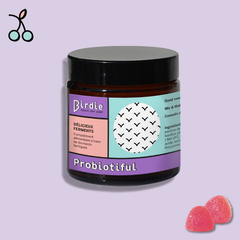
Digestion is an essential process for the body to function properly. But it is also of vital importance when dieting, as poor digestion is often synonymous with intestinal problems, a bloated stomach and weight gain.
To eliminate unsightly rolls of fat quickly and maintain a flat stomach, good digestion is essential.
In this article, we share with you some 100% natural tips that you absolutely must know!
Read also: weight loss, how to boost your metabolism?
I. A quoi sert la digestion ?
Digestion transforms the food swallowed into small molecules that can be absorbed by the cells of the digestive tract. As they pass into the bloodstream, these molecules can be used by the body to ensure the proper functioning of the cells in the various organs.
Digestion itself is a combination of two processes:
- Mechanical digestion takes place in the mouth and stomach. It reduces food to a pulp. The teeth grind the food into small pieces, and in the stomach, stirring and contractions continue this work of fragmentation.
- Chemical digestion takes place throughout the digestive tract, using enzymes and digestive juices secreted by the stomach or liver. Chemical digestion dissolves nutrients and breaks them down into assimilable elements.
Digestion is like an industrial assembly line. It is made up of a succession of organs, each with a specific role, from the fragmentation of food to the assimilation of nutrients.
The digestive system includes the mouth, stomach, small intestine and colon, as well as the gallbladder, pancreas and liver.
From the first bite, salivary enzymes immediately begin the work of digesting carbohydrates in the mouth, then the work of breaking down food continues in the stomach thanks to digestive enzymes, then in the intestine.
In this way, nutrients are absorbed throughout the digestive process, all the way to the colon.
In the colon, certain fatty acids, vitamins and minerals are absorbed or produced under the influence of the bacterial flora.
After absorption, nutrients pass into the bloodstream, which carries them to the liver, whose role is to filter the contents of the food bolus, extracting toxins and eliminating them.
Once filtered, nutrients are then distributed and used by the rest of the body or, when the body's energy needs are met, accumulated to build up reserves.
Thus, digestion is a complex system involving several organs, enzymes and bacteria that must work in a coordinated and synergistic manner. The slightest malfunction can impact the entire digestion process and reduce the absorption of certain nutrients.
II. Quel est le rôle des enzymes digestives ?
Digestive enzymes are involved in food digestion. They are molecules responsible for breaking down food into smaller fractions to enable the body to absorb the nutrients it needs.
They act as "scissors" as soon as food is present in our stomach, cutting food into smaller molecules and transforming them from a solid to a liquid state for the most perfect predigestion possible.
The nutrients absorbed into the bloodstream are then used as fuel for the functioning of our muscles, our heart or our brain.
Digestive enzymes are therefore the little specialists in charge of our good digestion. They are very important because they prevent undigested food particles from entering our digestive system. Without them, large molecules could remain, stagnate, putrefy and turn into toxins.
A sufficient amount of digestive enzymes is essential for proper digestion and assimilation of nutrients. There are tens of thousands of enzymes, each adapted to a particular chemical reaction:
- Amylase: Found mainly in saliva. It is the first enzyme to help in the first stage of food breakdown. It breaks down carbohydrates, starches and sugars into glucose.
- Proteases: Also known as proteolytic enzymes, these are the enzymes whose job it is to digest proteins and transform them into amino acids. Amino acids play an essential role in the proper functioning of the body. Two fruits are particularly rich in proteolytic enzymes: pineapple, rich in bromelain, and papaya, rich in papain.
- Lipase: Lipase is produced in our pancreas and secreted in the small intestine. It digests lipids, i.e. fats, transforming them into fatty acids. Fatty acids play an energetic, structural, anti-inflammatory and protective role for the body.

III. Repérer les signes de déficit en enzymes digestives
When you are 20 years old, heavy meals are not a problem... But as you get older, it's not the same: some meals don't go down well, you have to be careful with certain foods and after meals you are much less fit...
From around the age of 30 onwards, the levels of digestive enzymes naturally secreted in the body decrease and make digestion difficult.
Thus, poorly broken down food ends up in the colon, where it ferments and can trigger disorders that can impact the entire upper digestive system, in addition to reducing the absorption of essential amino acids, vitamins and minerals.
A deficiency in digestive enzymes results in incomplete breakdown of food, leading to malabsorption of nutrients , which in turn causes digestive discomfort: bloating, gas, abdominal pain, diarrhea, presence of fats in stools, etc.
On the other hand, poor dietary habits can aggravate digestive disorders. For example, it has been found that the level of salivary amylase in Westerners decreases by about 30 times between the ages of 30 and 80.
This decrease in enzymes would be linked to our modern way of eating, as it is not found in populations that eat a large part of their food raw.
Scientists believe that eating processed, overcooked foods rich in saturated fats leads to a saturation of the enzyme system. Our organs become exhausted from making more enzymes, especially our pancreas.
IV. Comment combler un manque d'enzymes digestives ?
There are many foods that contain digestive enzymes naturally:
- Raw fruits and vegetables are good sources of enzymes, particularly ginger, mango, kiwi, figs, aloe vera... Pineapple and papaya are rich in proteolytic enzymes, which facilitate protein digestion. Sprouted seeds are also rich in enzymes.
- Fermented foods are also full of enzymes and aid digestion.
For example, add olives, gherkins, capers or cider vinegar to your dishes.
To preserve the digestive enzymes naturally present in food and in your body:
- Prefer very gentle cooking (below 50°) and longcooking times as these preserve the enzymes naturally present in food.
- Avoid fatty or spicy foods and soft drinks as much as possible.
- Drink plenty of water and eat regularly, sitting down and chewing your food well.
To supply your body with digestive enzymes and thus facilitate digestion, you can turn to nutritional supplements.

At D-LAB, we have specially developed the Enzymatic Slimming Complex This innovative complex combines papain, bromelain and Kola extract, titrated with caffeine, with a rich formula of digestive enzymes of 100% natural and vegetable origin. This innovative complex combines papain, bromelain and Kola extract, titrated in caffeine.
Its active ingredients improve the digestion of fats, carbohydrates and proteins, promoting fat burning and weight loss.
- Lipase is the enzyme responsible for lipid degradation. It breaks down triglycerides into simpler molecules that can be assimilated by the body and used as a source of energy.
- Papain is a powerful, natural enzyme derived from papaya. Papain has a positive effect on the waistline, by attacking the fatty deposits located there. It helps to drain, disinfiltrate and evacuate excess fatty deposits.
- Bromelain is an enzyme extracted from pineapple. Its benefits are similar to those of papain. This plant enzyme helps to eliminate fat and reduce water retention. These two combined actions are invaluable in the fight against cellulite.
- White bean extract contains specific proteins that reduce the assimilation of sugars in the intestine. They thus help reduce blood sugar levels, and consequently triglyceride levels.
- Kola extract helps control feelings of hunger. It also acts as a genuine metabolism booster, accelerating caloric expenditure and activating fat burning. Its high caffeine (10%), theobromine and tannin content makes it an excellent stimulant for weight loss.
Read also: top des 5 régimes alimentaires pour l'été





